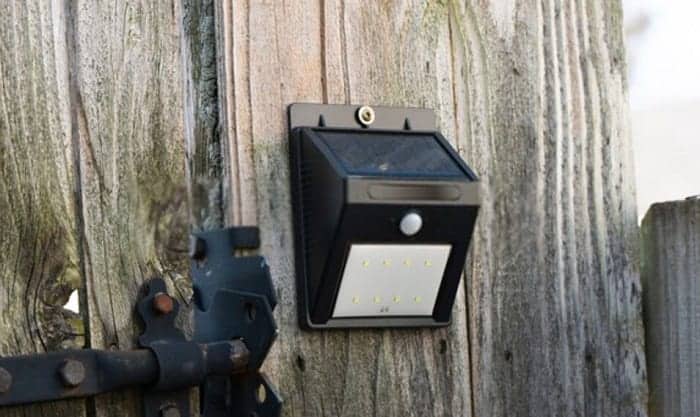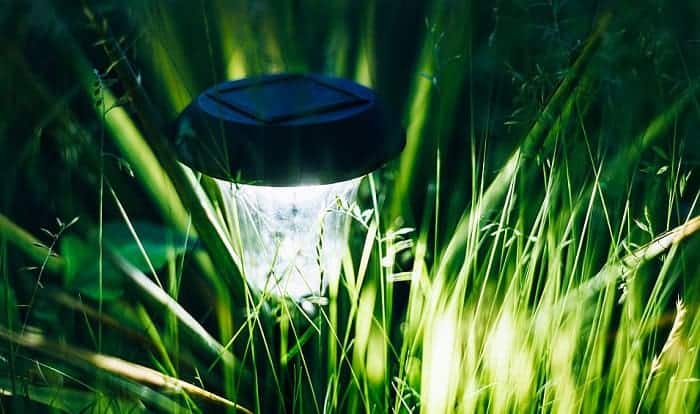Surely, one of the most excellent techniques to embellish and keep your outdoor spots properly lit is installing some solar lights. Interestingly, small adorning solar fixtures can add a tiny element of color to any outdoor spot at dusk.
Indeed, bigger solar-powered lights are meant to brighten up the pathway and other outdoor areas to heighten security. So they aren’t only meant for decorative purposes, but also to increase safety and security in any place they’re installed.
However, why do solar lights stop working? We’ll tackle that issue in this post, so keep reading!
Table of Contents
Why Do Solar Lights Stop Operating?
Fundamentally, there could be plenty of reasons why solar lights stop functioning well, and some of these include the following:
The solar panels are filthy and require cleaning.
Solar panels need to be cleaned regularly. Nonetheless, you must avoid using chemical-based cleaning agents when cleaning them.
You can use a washcloth, soft-bristled brush, and a mild cleaning soap/detergent. Gently but thoroughly clean the panels using a soft brush.
Once you’re finished cleaning, gently wipe down the panels using the slightly drenched washcloth.
Please be guided that solar panels need to be thoroughly cleaned from time to time. This is specifically necessary if you live in dusty and dry locations where solar panels are prone to dirt accumulation.
Apart from this, see to it that the panels are positioned in a safe and secure spot when they’re not in use. Store them properly during winters, or when not installed.
The solar panel does not absorb sufficient sunlight.
As you know, the energy from the sun is the sole source of energy for the solar panel to charge and store energy for the solar lights.
The solar panel won’t be able to charge the batteries if it does not acquire what it requires to charge, or when something is blocking the sunlight.
The batteries are dead.
Solar-powered fixtures will only operate when the batteries are charged. If you have cleaned up and inspected all possible issues, and the light still does not work, you might need to replace the batteries.
The batteries are usually situated beneath the solar panel assemblage. To inspect the workings inside, utilize a small screwdriver to open the compartment.
Be sure to replace the battery with a brand new one and with the same type.
They are positioned or installed in an inappropriate spot.
Whether you install simple solar gutter lights or those that are built with motion sensors, solar-powered fixtures require sunlight to work accordingly.
Take in mind that they won’t work if they are installed in shady areas, or somewhere where direct sunlight is blocked.
For this reason, it is a must to position the solar lights where their solar panels can absorb more sunlight.
As much as possible, avoid putting them in locations where they’re surrounded by tall plants. Solar-powered lights won’t perform their best if they’re placed in too much shade.
However, if you need a solar light that can work in shady area, check out my reviews on the top-rated solar lights for shade I’ve used before.
The solar light has been switched off or the fuse has blown.
Carefully inspect the switch to examine if it has been switched off. Turn on the lights and inspect if it operates.
The fuse might have blown if the solar light still does not function. To solve this, consider replacing the fuse because it might have blown when you switched the solar light off.
Something is wrong with the solar panels.
The solar panel is composed of individual cells that acquire the light from sunlight. So, if the solar panel has broken or loose connections, then you might have to fasten them back together.
Moreover, if there are loose connections, the solar light won’t be able to get from the panel, to the battery, and to the solar fixture.
Meanwhile, see to it that the batteries are properly connected and have power if your solar fixtures are brand new.
The solar-powered fixture has been exposed to excessive sunlight for a very long time.
Excessive exposure to sunlight for an extended period can cause the solar-powered unit to degenerate and stop generating energy.
So, if your solar lights stop operating, inspect if the batteries have not been exposed to direct sunlight.
Aside from this, you’ll need to thoroughly inspect if there are residues or water on the solar panel.
There is no adequate sunlight.
The charging efficiency of solar panels can be largely affected by weather conditions.
Substantially, solar-powered fixtures operate by acquiring energy from the sun. So, if there’s no sufficient sunlight in the daytime, your solar fixtures won’t have adequate power to last all throughout the dusk.
Battery Charge
In general, when you buy a new product, it comes with already installed batteries.
Nevertheless, those batteries usually lose their charge in the period it takes for the item to be bought.
Hence, if your solar-powered fixtures do not work after you’ve bought them, consider charging them for one full day before utilizing them.
Check the pull tab for batteries.
Sometimes, when you purchase new solar-powered lights, you tend to forget to pull the tab. The pull tab is typically utilized to preserve the lifespan of the batteries. It is placed near the batteries.
You’ll need to pull the tab out so that you can allow the batteries to make contact with the solar-powered fixture and begin operating.
There might be a problem with the sensor function.
Solar-powered fixtures work in the dusk. Thus, to examine if the sensor is operating, you have to examine them at night. Or, you may consider stimulating darkness by covering the sensor with your hand.
From there, observe if the solar fixtures do not operate when you position them in the dark or when they’re covered. If the solar lights don’t work, then this could mean that there might be a problem with the sensor.
You could either change the broken wire or sensor. Alternatively, you might be able to claim it under the product warranty to ask for a replacement. Generally speaking, this is a usual dysfunction in solar-powered string fixtures.
Fortunately, there are several solutions to try when your solar-powered light is not functioning properly. Some solar-powered fixtures can be taken apart. You can also clean or replace the light and the wires.
Another option is to examine if the circuit is damaged or broken. Consider taking the solar light out, take it apart, and inspect if the wiring isn’t responding to the battery.
Please be reminded to use proper caution when taking a solar-powered fixture apart. Make sure that the lights are not exposed to water.
Lastly, you should ensure that the solar panel is not submerged in water.
Conclusion
Solar-powered lights are second to none tools to use if you’d like to save more on energy cost and use eco-friendly lighting systems. They are adept at illuminating various indoor and outdoor areas.
Regardless, there could be several reasons that could make them not work as expected. To ensure that they operate as expected, the guides aforementioned should be highly considered.
As you can see, there are many distinct causes why solar lights do not work properly. Hopefully, the guides shared in this post can help you fix some issues about why your solar lights do not work well.

I am Kathleen Miller, staff writer and reviewer of the Avasolar team. Working with the team has been a pleasure for me so far, I hope to bring readers useful information by creating detailed and easy-to-follow contents.


